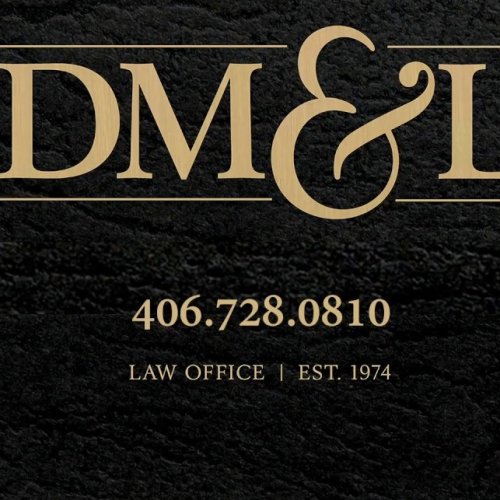Best Accidents & Injuries Lawyers in Hamilton
Share your needs with us, get contacted by law firms.
Free. Takes 2 min.
List of the best lawyers in Hamilton, United States
United States Accidents & Injuries Legal Articles
Browse our 1 legal article about Accidents & Injuries in United States written by expert lawyers.
- What to Do After a Serious Car Accident in the US: A Legal Step-by-Step Guide
- Call 911, get medical help, and do not admit fault. Photograph the scene, vehicles, and your injuries, and get witness names and the officer's report number. Report the crash to your insurer quickly. In no-fault states, PIP deadlines are short (e.g., Florida requires initial treatment within 14 days; New York... Read more →
About Accidents & Injuries Law in Hamilton, United States
The law surrounding accidents and injuries in Hamilton mainly falls under the category of Personal Injury Law. This legal field concerns itself with incidents where an individual suffered an injury due to someone else's negligence or intentional misconduct. Such incidents could include, but are not limited to, car accidents, workplace accidents, slips and falls, and medical malpractice.
Why You May Need a Lawyer
Legal support is often necessary in accident and injury cases to ensure the injured party receives the compensation they are due. Lawyers can help individuals understand their rights, evaluate the validity of a claim, estimate the likely compensation, and negotiate with insurance companies or file lawsuits if necessary. You might specifically need a lawyer in a variety of situations such as severe or long-term injuries, medical malpractice incidents, refusal by insurance companies to pay, or if the liability is not clear.
Local Laws Overview
The state in which Hamilton is located, Ohio, has specific laws that affect personal injury cases. Ohio follows a modified comparative negligence rule, meaning that an injured party can still recover damages if they are partly at fault, but the compensation will be reduced by the proportion of their fault. Ohio also imposes a two-year statute of limitations, meaning personal injury lawsuits must be filed within two years from the date of the accident.
Frequently Asked Questions
1. How much will it cost to hire a personal injury lawyer?
Most personal injury attorneys work on a contingency fee basis, which means they only get paid if they win the case. The fee usually ranges from 25% to 40% of the compensation received.
2. What happens if the person at fault doesn't have insurance?
If the person responsible for your injury does not have insurance, you might be able to seek damages from your own insurance company or pursue a lawsuit against the at-fault party directly.
3. What does 'comparative negligence' mean?
Comparative negligence means that if you are partially at fault for the accident, your compensation will be reduced by the percentage of your fault.
4. Can I still file a lawsuit after the statute of limitations has expired?
Typically, you cannot file a lawsuit after the statute of limitations has expired, except in some special circumstances. It's crucial to consult a lawyer promptly after an accident to avoid missing important deadlines.
5. What types of damages can I claim?
Generally, you can claim economic damages for tangible losses like medical expenses and lost wages, non-economic damages for intangible losses like pain and suffering, and in some cases, punitive damages meant to punish the defendant and deter similar conduct in the future.
Additional Resources
For additional support and resources, individuals can contact the Hamilton County Clerk of Courts for procedural guidance or access Ohio Legal Help, a website providing legal information and resources for Ohio residents. The Ohio Bar Association also provides resources and can assist in locating a qualified personal injury attorney.
Next Steps
If you are in need of legal assistance, you should first seek medical attention for your injuries. Afterwards, consider consulting with a personal injury lawyer to discuss your case. Make sure to keep all documents related to your injury, including medical records and expenses, as this information will be crucial to your claim. Finally, report your accident to the appropriate parties, including your insurance company, and avoid any premature settlements until you've received a full evaluation of your situation.
Lawzana helps you find the best lawyers and law firms in Hamilton through a curated and pre-screened list of qualified legal professionals. Our platform offers rankings and detailed profiles of attorneys and law firms, allowing you to compare based on practice areas, including Accidents & Injuries, experience, and client feedback.
Each profile includes a description of the firm's areas of practice, client reviews, team members and partners, year of establishment, spoken languages, office locations, contact information, social media presence, and any published articles or resources. Most firms on our platform speak English and are experienced in both local and international legal matters.
Get a quote from top-rated law firms in Hamilton, United States — quickly, securely, and without unnecessary hassle.
Disclaimer:
The information provided on this page is for general informational purposes only and does not constitute legal advice. While we strive to ensure the accuracy and relevance of the content, legal information may change over time, and interpretations of the law can vary. You should always consult with a qualified legal professional for advice specific to your situation.
We disclaim all liability for actions taken or not taken based on the content of this page. If you believe any information is incorrect or outdated, please contact us, and we will review and update it where appropriate.
Browse accidents & injuries law firms by service in Hamilton, United States
Hamilton, United States Attorneys in related practice areas.








